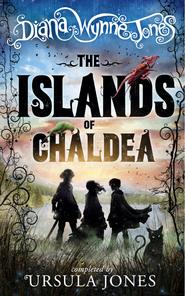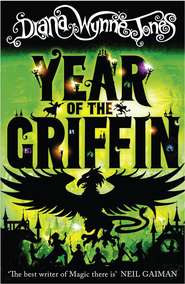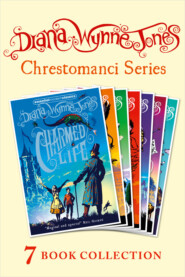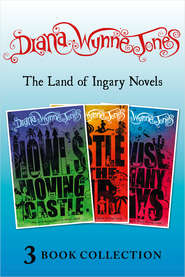По всем вопросам обращайтесь на: info@litportal.ru
(©) 2003-2025.
✖
Conrad’s Fate
Настройки чтения
Размер шрифта
Высота строк
Поля
And the dog did stop. Not only did it stop, but it wagged its tail and wagged its bunched-up hind parts and came crawling and grovelling towards Christopher, where it tried to lick his beautiful shoes.
“No slobber,” Christopher commanded, and the dog stopped and just grovelled instead. “You’ve made a mistake,” he told it. “No one here’s a trespasser. Go away. Go back where you came from.” He pointed sternly up at the trees. The dog got up and walked slowly back the way it had come, turning round hopefully every so often as it went, in case Christopher was going to let it come and grovel again. Christopher came down the hill saying, “I think it’s trained to go for anyone who isn’t on the path. Shoes on again, everyone, I’m afraid.”
Everyone now regarded him as a sort of hero, saviour and commander. Several girls gave him passionate looks while they put their shoes back on, and we all limped and straggled on round another curve of drive. Here there were hedges, with glimpses of flowers blazing beyond and, beyond that, a twinkle of many windows from behind the trees. A path branched off to the right. Christopher said, “This way, troops,” and led everyone along it.
We went through more parkland, but it was just as well everyone had put their shoes on again, because this path was quite short and soon branched into another, among tall shiny shrubs, where it ended in a flight of stone steps.
The boys hastily put their jackets back on. A youngish man was waiting for us at the top of these steps. He was quite skinny and only an inch or so taller than Christopher. He had a nice, snubby face. But all of us, even Christopher, stared up at him with awe because he was dressed in black velvet knee breeches, with yellow and brown striped stockings below those and black buckled shoes. He wore a matching brown and yellow striped waistcoat over a white shirt, and his fairish hair was long, tied at the back of his neck by a smooth black bow. It was enough to make anyone stare.
Christopher dropped back beside me. “Ah,” he said. “I see a footman or a lackey. But it’s the breeches that seem to be velvet. The hose are striped silk.”
“My name’s Hugo,” the young man said. He smiled at us, very pleasantly. “If you’ll just follow me, I’ll show you where to go. Mr Amos is waiting to interview you in the undercroft.”
Chapter Five (#ulink_12dce9b3-af39-542d-bc31-76eb2f4e93bb)
Every one went quiet and nervous. Even Christopher said nothing more. We all trooped up the steps and, with the young man’s buckled shoes and striped stockings flashing ahead, we followed him through confusing shrubbery paths. By now we were quite near the mansion. We kept getting glimpses of high walls and windows above the bushes, but we only got a real sight of the house when Hugo led us cornerwise to a door in a yard. Just for a moment, there was a space where you could look along the front of the mansion. We all craned sideways.
The place was enormous. There were windows in rows. It seemed to have its main front door halfway up the front wall, with two big stone stairways curving up to it, and all sorts of curlicues and golden things above that, on a heavy piece of roof that hung over the door. There was a fountain jetting down between the two stairways, and a massive circle of drive beyond that.
This was all I had time to see. Hugo led us at a brisk pace into the yard, across it, and in through a large square doorway in the lower part of the house. In no time at all we were crowding into a big wood-lined room where Mr Amos was standing waiting for us.
No one had any doubt who he was. You could tell he was a Stallery servant because he wore a striped waistcoat like Hugo’s, but the rest of his clothes were black, like someone going to a funeral. He had surprisingly small feet in very shiny black shoes. He stood with his hands clasped behind his back, like something blocky that might be going to take root in the floor, his small shiny shoes astride, his blunt, pear-shaped face forward, and he made you feel almost religious awe. The Bishop down in Stallchester was much less awe-inspiring than Mr Amos was – although it was hard to see why. He was the most pear-shaped man I had ever seen. His striped waistcoat rounded in front, his black coat spread at the sides, and his hands had to reach a long way back in order to clasp behind him. His face was rather purple as well as pear-shaped. His lips were quite thick below his wide, flat nose. He was not much taller than me. But you felt that if Mr Amos were to get angry and uproot his small shiny shoes from the floor, the floor would shake and the world with it.
“Thank you, Mr Hugo,” he said. He had a deep, resounding voice. “Now I want you all standing in a line, hands by your sides, and let me look at you.”
We all hastily shuffled into a row. Those of us with plastic bags tried to lean them up against the backs of our legs, out of sight. Mr Amos uprooted himself then, and the floor did shake slightly as he paced along in front of us, looking each of us intently in the face. His eyes were quite as awesome as the rest of him, like stones in his purple face. When he came to me, I tried to stare woodenly above his smooth grey head. This seemed the right way to behave. He smelt a little like Mayor Seuly, only more strongly, of good cloth, fine wine and cigar. When he came to Christopher at the end of the line, he seemed to stare harder at him than at anyone, which worried me quite a lot. Then he turned massively sideways and snapped his fingers.
Instantly two more youngish men dressed like Hugo came into the room and stood looking polite and willing.
“Gregor,” Mr Amos said to one, “take these two boys and this girl to be interviewed by Chef. Andrew, these boys are to see Mr Avenloch. Take them to the conservatory, please. Mr Hugo, all the rest of the girls will see Mrs Baldock in the Housekeeper’s Room.”
All three young men nodded, murmured, “Yes, Mr Amos,” and led their batch of people away. I think most of them had to catch the next tram down into Stallchester. I never saw more than two of them again. In a matter of seconds, the room was empty except for Mr Amos, Christopher and me. My heart began to bang again, horribly.
Mr Amos planted himself in front of us. “You two look the most likely ones,” he said. His voice boomed in the empty room. “Can I have your names, please.”
“Er,” I said. “Conrad Grant.”
Christopher said, with great smartness, “I’m Christopher Smith, Mr Amos.” I bet that’s a lie, I thought. He’s got an alias, just like me.
Mr Amos’s stone-like eyes turned to me. “And where are you from?”
“The bookshop,” I said, “down in Stallchester.”
The stone eyes rolled up and down to examine me. “Then,” Mr Amos said, “I take it you’ll have had no experience of domestic work.”
“I clean the shop quite often,” I said.
“Not what I had in mind,” Mr Amos said coldly. “No experience of waiting on your betters, I meant. Being polite. Guessing what they need before they ask. Being invisible until they need you. Have you?”
“No,” I said.
“And you?” Mr Amos asked, moving his stony eyes to Christopher. “You’re older. You must have earned your keep, or you wouldn’t have had the money for those fancy clothes.”
Christopher bowed his neatly clipped dark head. “Yes, Mr Amos. I confess I have been three years in a household of some size – though not as big as this one, of course. But, in case you get the wrong impression, I was there more as a hanger-on than precisely as part of the workforce.”
Mr Amos stared intently at Christopher. “You mean as a poor relation?” he said.
“That sort of thing, yes,” Christopher agreed. I thought he sounded a little uncomfortable about it.
“So neither of you has the sort of experience I mentioned,” Mr Amos said. “Good. I like my trainees ignorant. It means they don’t come to Stallery with all the wrong habits. Next big question. How do you both feel about serving as a valet – a gentleman’s gentleman? This means dressing your gentleman, caring for his clothes, looking to his comfort, running errands if he asks it, even cooking for him in certain cases, and generally knowing the gentleman’s secrets – but never, ever breathing a word of those secrets to another soul. Can you do all that?”
Christopher looked a little stunned by this. I remembered how Christopher, so oddly, had not seemed to know why he was here, and I realised that this was my best chance ever of making sure I got this job. “I’d like doing that a lot,” I said.
“Me too,” Christopher said promptly. “Looking after clothes and keeping secrets are the two things I do best, Mr Amos.” I began to think I hated him.
“Good, good,” Mr Amos said. “I’m glad to see you both so ambitious. Because of course it will take some years of training before either of you are up to a position of such trust. But both of you seem quite promising material.” He rocked back and forth on his small shiny feet. “Let me explain,” he commanded. “In a few years I shall probably be retiring. When this happens, my son, Mr Hugo, will naturally take over my position in charge of Stallery, as I took over from my father here. This will leave untenanted Mr Hugo’s current post as valet to Count Robert. My aim is to train up more than one candidate for this position, so that, when the time comes, Count Robert will have a choice. With this in mind, I propose to appoint the pair of you to the position of Improvers, and I expect you to regard yourselves as rivals for the honour of becoming, in time, a proper valet. I shall naturally recommend to the Count whichever of you most meets with my approval.”
This was wonderful luck! I could feel my face spreading into a relieved grin. “Thank you!” I said, and then added, “Mr Amos, sir,” in order to start by being respectful.
Christopher seemed equally relieved, but also slightly bewildered. “Er, won’t you need to see any of my references, sir?” he asked. “One of them is quite glowing.”
“Keep them,” Mr Amos said, “for your own encouragement. The only reference I need is my own powers of observation, honed through many years of scrutinising young applicants. You no doubt saw the ease with which I distinguished who, among your companions, was likely to make a kitchen apprentice, who were potential maidservants and who could only become a gardener’s boy. I can do this in seconds and I am almost never wrong. Am I, Mr Hugo?”
“Very seldom,” Hugo agreed, from the other side of the room.
Neither of us had seen him come in. We both jumped.
“Take Christopher and Conrad to their quarters, Mr Hugo, show them the establishment and acquaint them with their hours,” Mr Amos said. “We have our two Improvers, I am glad to say.”
“Yes, sir. Where do they eat?” Hugo asked.
We could see this was an important question. Mr Amos looked gravely at us, looked at the ceiling, and rocked on his feet. “Quite,” he said. “The Middle Hall will be their station once it is in use, but since it is not…Not the Lower Hall, I fear. Young men are too prone to horseplay with the maidservants. I think we must reluctantly do as we temporarily did with the footmen and allow them to eat in the Upper Hall until the period of mourning for the late Count is past and we have Stallery full of guests again. Show them, will you. I want them present and properly dressed when I Serve Tea.”
Hugo held open the door beside him and said, in his pleasant way, “If you’d come with me, then.”
As I picked up my plastic bag and followed Christopher through that door, I was nervous all over again, in quite a new way. I felt as if I had accidentally entered the priesthood and wasn’t cut out for it. I expected Christopher to be feeling the same; but, as Hugo showed us into a slow brown lift – “Strictly for Staff,” he said. “Never show Family or their friends to a Staff lift” – and pressed button A for the attics, I could see Christopher was wholly delighted, bubbling over with delight, as if he had just won a game. He looked the way I felt whenever Uncle Alfred pleaded with me to go on doing the cooking.
Christopher seemed quite unable to contain his joy while the lift climbed sluggishly upwards. “Tell me,” he burst out at Hugo, “will Conrad and I learn your trick of entering a room through a crack in the floorboards? I once read a book where a manservant was always oozing in like some soundless liquid, but with you it was more like soundless gas! You were just there! Was it magic?”
Hugo grinned at this. Now I knew he was Mr Amos’s son, I could see the likeness. He had the big lips and the snubby nose, but in Hugo it was rather nice-looking. Otherwise, he was such a different size and shape, and seemed such a different sort of person, that it was hard to see him stepping into his father’s place when Mr Amos retired. “You’ll learn how to enter a room,” he said, leaning against the wall of the lift. “My father had me doing it for hours before he let me go into a room where the Family were. But the main thing you’ll learn – I’m warning you – is how to be on your feet for fourteen hours at a stretch. Staff never sit down. Any more questions?”
“Hundreds,” Christopher said. “So many I can’t think what to ask first.” This was evidently true. He had to stop and stare at the wall, trying to decide.
I seized the space to ask, “Should we call you Mr Hugo?”
“Only in front of my father,” Hugo said with another grin. “He’s very strict about it.”
“Because you’re the heir to the butlership?” Christopher asked irrepressibly.











